You can find video of all of our live-streamed services on our YouTube page: youtube.com/@stpaulsmanhattan
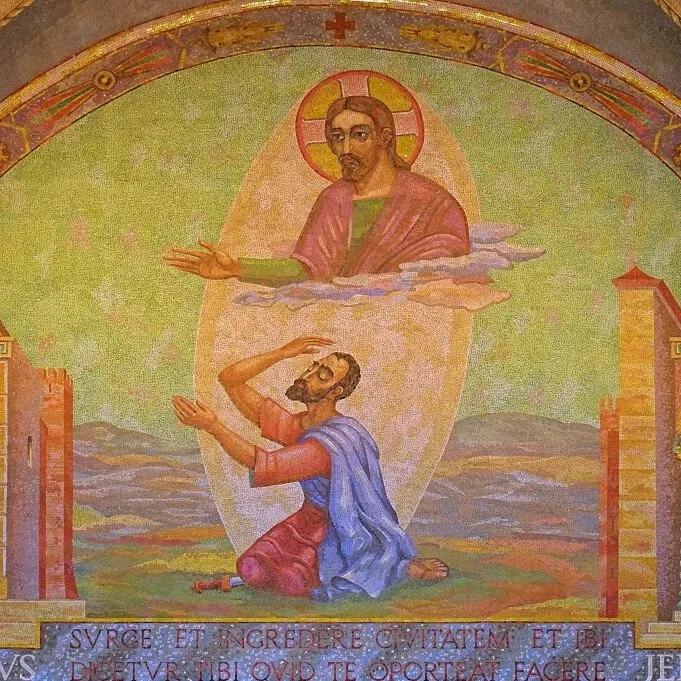
A vision that makes a demand of us
This morning, we celebrate the Feast of the Conversion of St. Paul. It’s what we call our patronal feast, the feast day of the saint our church is named for.
Paul’s story is a story of God’s call, and of a life lived in service to that call. It’s also a story about moving forward when you don’t know what’s ahead, which feels particularly relevant as we begin this new year together.

“What are you looking for?”
Epiphany. What does that word mean to you? A dramatic revelation? A quieter realization? On the Christian calendar, Epiphany is both a day and a season. The day wise men appeared from the East bearing gifts for a newborn baby, whose birth was heralded by a star. And the season in which we remember all the ways in which Jesus becomes known. The great stories of Epiphany are stories that inspire artists and writers.
But an Epiphany can also be a quieter thing. And that’s what we see in today’s Gospel. Jesus approaches John the Baptist, who recognizes him at once. Andrew and another disciple see John point to Jesus, and so they follow him, curious. And so we come to Jesus’s first words in the Gospel of John. Jesus doesn’t begin his work with mystery or miracle. He starts with a question.
“What are you looking for?”

Promises
“The Lord shall give strength to his people; the Lord shall give his people the blessing of peace.” Those words from today’s psalm make a promise that’s just as necessary today as it was back then. And then there’s Isaiah, who promises the coming of one who “will bring forth justice to the nations.”
Strength and peace and justice. Ancient promises.
But when the heavens do open in today’s Gospel, when the Spirit descends and a voice from heaven speaks, it doesn’t mark an ending.... It marks a beginning.
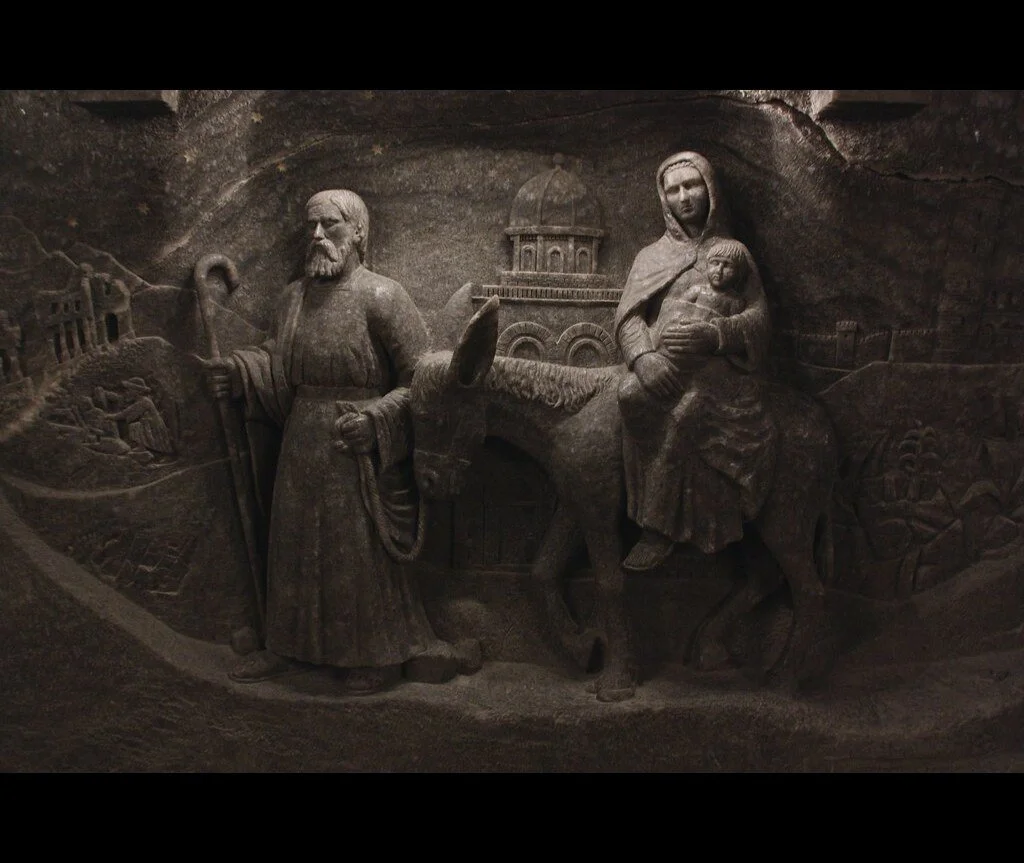
Joseph's courage
I once heard someone say that the gospel of Luke is like a musical. The gospel of Matthew, on the other hand, is nothing like that. In Matthew we have political intrigue... the Holy Family’s flight out of Bethlehem into Egypt... Jesus’ life threatened from the very beginning. Fully divine, yes, but as a child in need of protection, fully, terrifyingly, human.
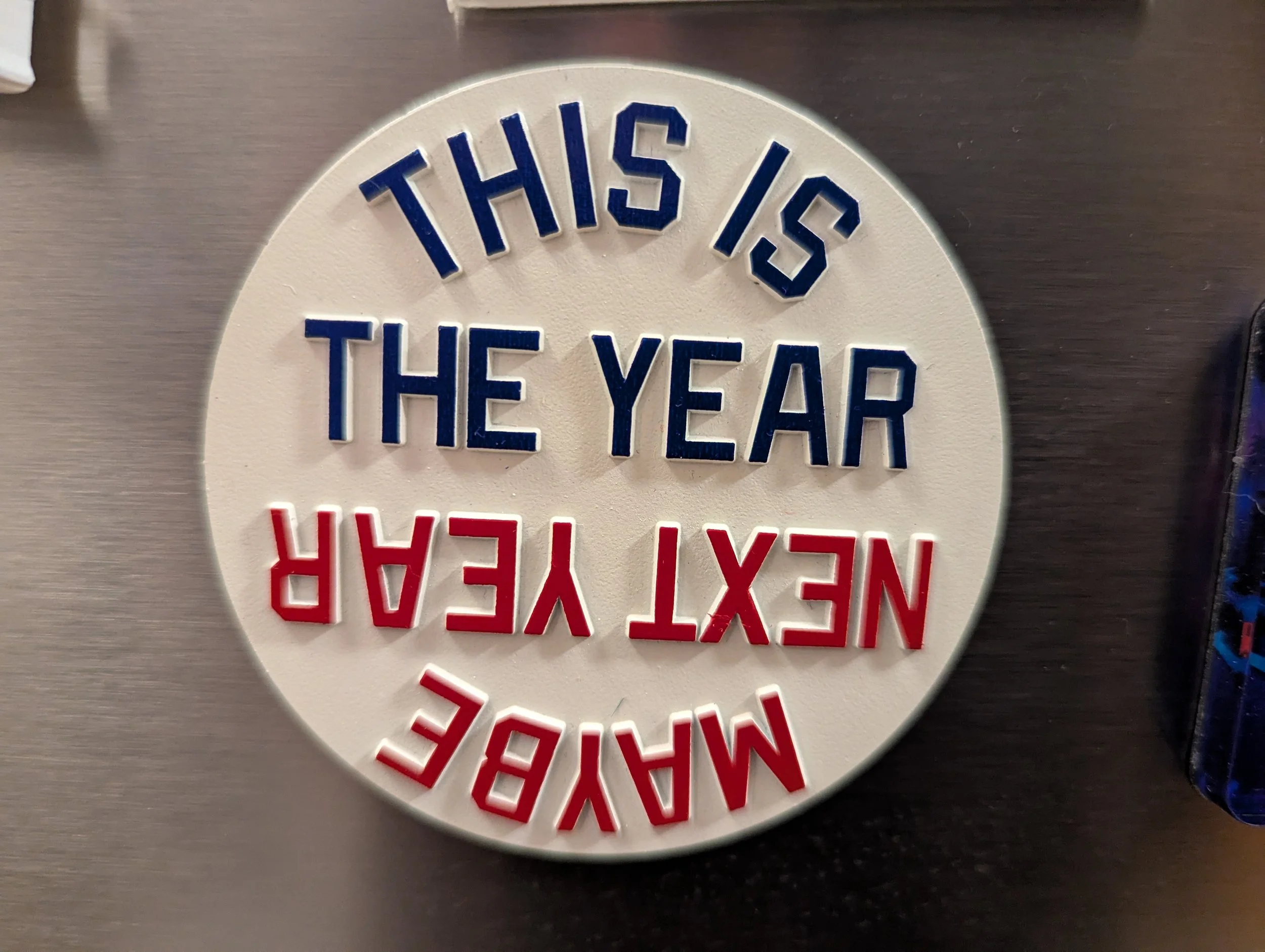
The promise of Christmas
Today is the fourth day of Christmas—which means, as far as the Church calendar is concerned... the celebration that we began on Wednesday night continues. Christmas won’t end until the wise men arrive on the Feast of the Epiphany on January 6.
There’s a wisdom in the ancient Church calendar, because it takes more than a day to even begin to grasp the mystery of Jesus’s Incarnation. We really need both Advent—a time of preparation—and Christmas—a time of celebration.
But... the next holiday on most of our minds isn’t Epiphany, but New Year’s Eve.
New Year’s Eve. It’s a time to make resolutions. To get serious. To start fresh. To turn a corner. You’ve probably heard the slogan: “New year. New you.”—which seems to imply that the old you isn’t good enough.
Where we go wrong is when we decide that the only way to be worthy of love, peace, or hope is to improve ourselves first.
That gets the promise of Christmas exactly backwards.
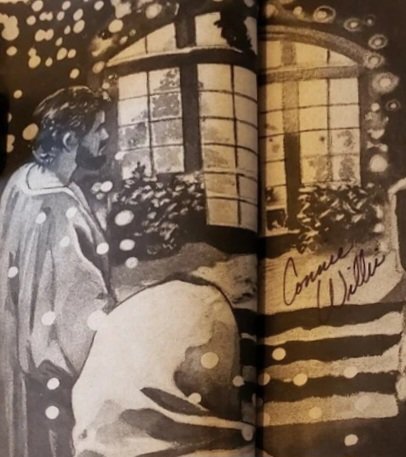
The question the Christmas story asks us
A member of St. Paul’s introduced me to a book of short stories about Christmas written by science fiction author Connie Willis. One I haven’t been able to forget is called Inn.
The story is set in a church—a church not unlike this one. It’s December 23. The clergy and volunteers are doing their best to make sure nothing goes wrong on Christmas Eve.
A choir member named Sharon steps out of the sanctuary for a moment, and she hears a soft knock at the building’s door. She cracks it open, and encounters a young couple who speak a language she doesn’t recognize. They seem vulnerable, cold, lost. Sharon notices that they’re wearing sandals in the snow...
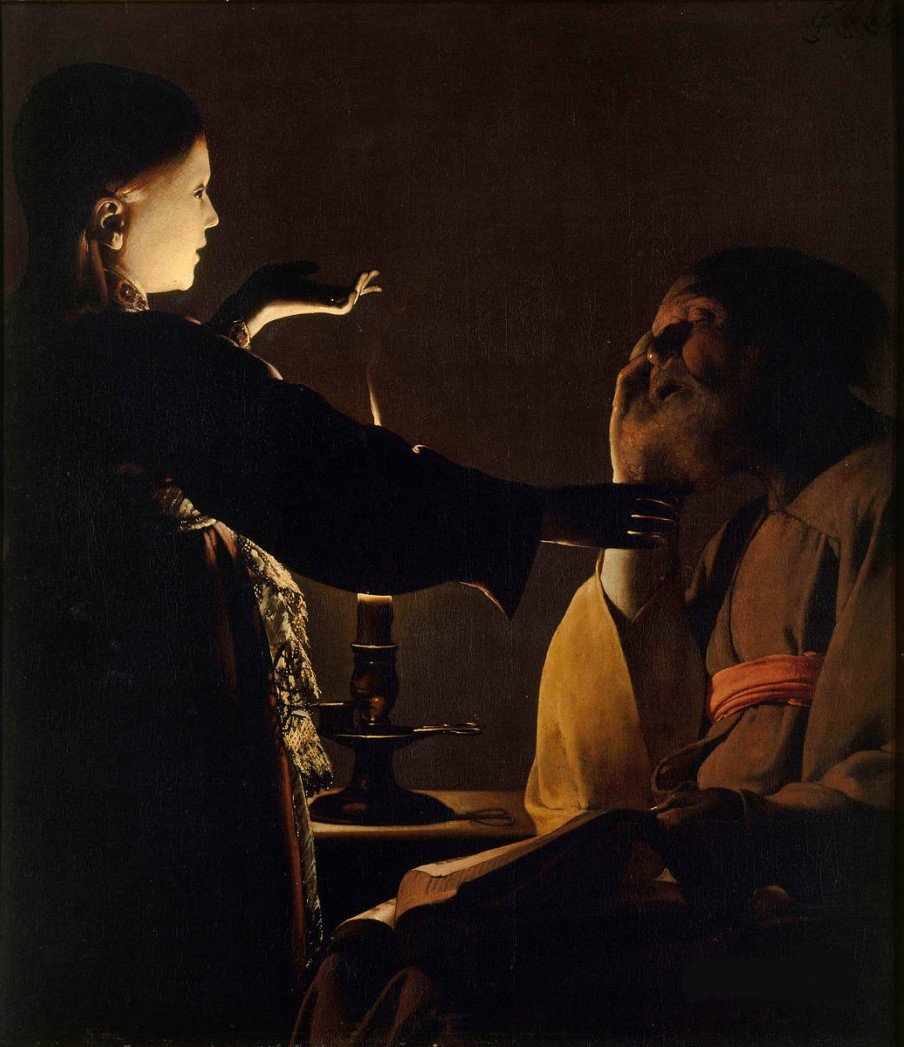
God with us
“Look, the young woman is with child and shall bear a son, and shall name him Immanuel,” which means “God is with us.”
We tend to remember the Christmas story through a child’s eyes. But the whole story is so much messier…. It’s a story full of shame and fear, threat and wonder. A young woman pregnant—but unmarried. A fiancé who knows that the world expects him to walk away.
And into this messy scene comes an angel with a promise: the child to be born comes from God. Not only does he come from God, he will be God. He is God. Emmanuel. God with us.

The flowering desert
I once had the chance to visit the Atacama Desert. It’s one of the driest places on earth. Some areas of the desert can go years, or even decades, without rain. There were no birds, no rustling trees. No sounds of water.
There was, though, a sense of expectation. And when it rains, that empty landscape bursts into bloom. Blankets of brilliant color stretch across the usually barren sand. Locals call it the desierto florido. The flowering desert.
The seeds were there all along, hidden in the dust.

Hope
“A shoot shall come out from the stump of Jesse, and a branch shall grow out of his roots.”
I have a tree stump in my yard. It gets in the way. I have to mow around it. There’s no life in it. No hope of new growth. I’m just waiting for it to rot away. And that’s where Isaiah starts today. Not with a healthy branch or a towering cedar, but with a stump.

Stay awake. Know what is happening. Be prepared.
Our lectionary readings for today are meant to be instructive, to teach us how we are to enter this reflective season of Advent. The wisdom of centuries has come down to us in the selections of these passages, because the sages of old have found that they serve us well as we spiritually prepare for the arrival of the child Jesus. In the Isaiah passage for this Sunday, we learn that we should expect some great things in the future....
St. Paul adds some color to this scriptural call to be prepared. Now is the “moment for you to wake from sleep.”
The gospel today is even more specific....
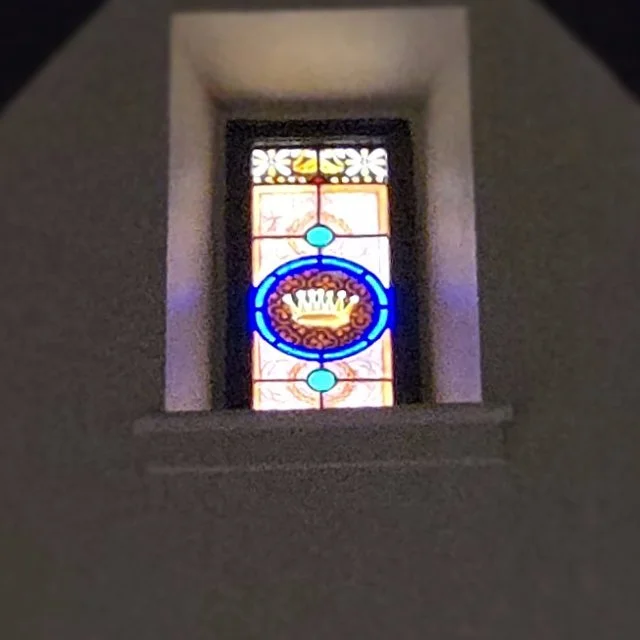
Our deepest loyalty
We call this day the feast of Christ the King. But the readings appointed for this morning remind us that Christ is a very particular sort of king. He’s not the sort of king our world expects. Caesar didn’t recognize a king who ruled by mercy. Pilate couldn’t understand a king who might refuse to save himself. And, if we’re honest, we often don’t recognize a king like that either — at least not at first glance.

A promise full of hope
I used to live in New York City. Almost every morning, I took the subway from Grand Central Station. On my way down the stairs, I’d often pass a petite elderly woman who spent her mornings standing just outside the turnstiles. She was always neatly dressed, with her hair up in a scarf and a Bible in her hand.
“No one knows the day, and no one knows the hour,” she’d say. Over and over again....
Maybe it’s just the relentless pace of the news, but the sense that something apocalyptic might be on the horizon is a feeling I understand better today than I did all those years ago ...

What’s important
This week, we’re finishing up our Episcopal 101 class. We’ve talked about liturgy, about how the church works, and about doctrine.
Those topics are important.... Sometimes, though, we need to remember that Jesus pretty regularly cautioned those who focused on minutia while “neglect[ing] the weightier matters of the law: justice and mercy and faith.”
Today’s Gospel reading from Luke is another example of the same sort of warning. A group of Jesus’s opponents come to him with a “gotcha” question.
Jesus answers with relationship and with mystery.

A Sermon for All Saints
In the gospels, there are many passages of Jesus’ words that are difficult to understand; at first blush our reading today from the gospel of Luke is not one of those.
Jesus gives a very clear picture of the Kingdom of God and what it means to be a disciple.
But he didn’t stop there. He made it a whole lot harder. If not harder to understand, certainly harder to live out.

Prayers have to be real
Two men went up to the temple to pray.
Two very different men. But both came to the holy place. Both offered their prayers to God.
Why does God hear one prayer and not the other?

Wrestling with God
Jacob stands alone beside the river...
afraid that he’ll lose everything he’s worked and schemed for.
All that remains is the dark, the fear, the sound of water, and the long wait for the morning.
Then, out of nowhere, a stranger appears.
The two wrestle through the night.
And Jacob says... “I will not let you go, unless you bless me.”

Crossing borders, ignoring status, reaching out
Today we heard two stories of healing, centuries apart. One involves the prophet Elisha. One involves Jesus. Both stories are about lepers. Both stories are about foreigners. Both stories are about mercy that refuses to stay inside the expected bounds of religion and rank.
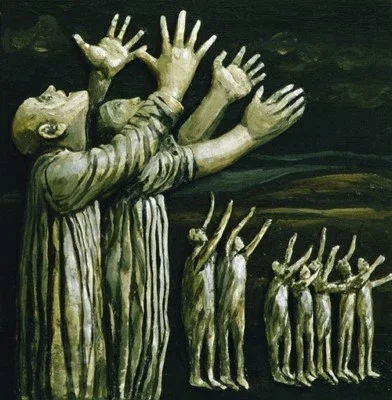
Lament and Rejoice
A prayer of lament doesn’t doubt God’s reality, or God’s power. The very act of prayer holds within it an assumption of faith, a seed of hope.
Even when all seems lost, the prophet declares, “I will rejoice in the Lord, I will exult in the God of my salvation.” It’s not denial. It’s defiance. It’s faith that refuses to let despair have the last word.

The hands of God
Psalm 146 tells us that God “keeps his promise for ever,” “gives justice to those who are oppressed, and food to those who hunger,” “sets the prisoners free,” “opens the eyes of the blind,” “lifts up those who are bowed low,” “loves the righteous,” “cares for the stranger,” “sustains the orphan and the widow,” and “frustrates the way of the wicked.”
The psalm invites us to trust that God’s promises are true even when we can’t see their full reality. And I wonder if the psalm might also suggest a role for us to play.

Who do you serve?
Today’s readings show us three very different models for a life lived in service to God... Each model can help us live a faithful life—but each has its own pitfalls and blind spots.

